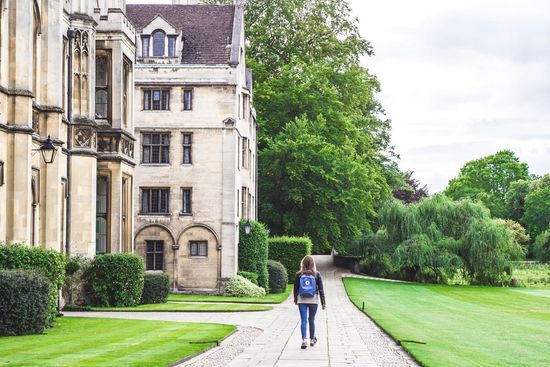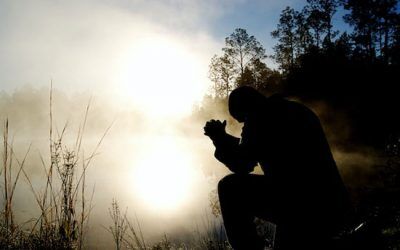Children’s Sabbath School is a Bible program offered every Sabbath at Adventist churches for children from birth to age 18. These classes give children the chance to learn Bible stories, make new friends, and participate in fun activities.
And most importantly, they offer age-appropriate curriculums to teach children what it means to follow Jesus Christ.
Follow along as we show you:
- What children’s Sabbath School classes are like
- What programs are used for Sabbath School
- What makes Sabbath School so important
What are children’s Sabbath School classes like?
Similar to the adult Sabbath School, children’s Sabbath School classes take place in many Adventist churches every Sabbath. The classes typically start at 9:30 a.m. before the church worship service, and they are designed with lessons and activities based on the age of the students.
However, small churches may combine age groups together if they don’t have enough students or teachers. For example, the cradle roll class (infants to two-year-olds) might be combined with kindergarten (three to four-year-olds), and the earliteen class might be combined with the teen class to create a bigger group.
In general, younger students learn Bible stories through interactive activities like songs and crafts. Older students, on the other hand, learn about the Bible and its practical applications through discussion.
Let’s get a tour of each class, starting with cradle roll.
Beginner/cradle roll
As you enter this class, you’ll see young babies and toddlers up to two years old, listening to their teachers tell Bible stories.
During the program, teachers will lead the kids in Bible songs and activities that relate to and illustrate their Bible lesson. They might interact with puppets, earn stickers for repeating memory verses, or enjoy a Bible-themed snack (like animal crackers for Noah’s ark).
Through all the fun and singing, the children are left with one overarching message—that they have a Savior and God who loves them!
Kindergarten
Kindergarten is for children ages three to four. In this class, they sing with their teachers and participate in even more Bible activities. You may see teachers illustrating the weekly Bible story with felt characters and scenery.
Through the lessons, the children learn how much Jesus loves them and what it means to love others too.
Primary
If you head into the primary Sabbath School class, you’ll see elementary-aged children (five to nine years old). The students will sing and enjoy interactive activities about Jesus, as in the other classes for younger children.
By this age, they’ll also do more complex activities like making crafts to illustrate the day’s lesson. For example, they might use playdough and popsicle sticks to recreate Bible scenes from the stories of Noah’s ark or David and Goliath.
Junior
By now, we’re getting to the classrooms with the older kids. Here, you’ll see ten- to twelve-year-olds discussing their lesson with their teachers.
Though they don’t have as many hands-on activities as earlier classes, the juniors still enjoy learning from object lessons, puzzles, and other brain teasers as they grow in their relationship with Jesus.
Earliteen
In this classroom, you’ll meet a group of young teenagers, ages 13 to 14. You’ll listen in as they look up Bible passages, review the lesson from the week, and learn object lessons from history, science, and nonfiction stories.
The programs for this age group are geared to help the students make good decisions and live Christ-centered lives.
Teen/youth
At last, you’ll enter the final classroom on our tour—the class for high school students, ages 15 to 18. Here, the teacher leads the students in a deeper discussion of the Bible and directs them to verses that apply to the particular lesson.
Don’t be surprised if you hear the students ask a lot of questions.
It’s in this class that they are really encouraged to dig deep and ask tough questions about the Bible and how it relates to their lives.
What programs are used to teach Sabbath School?

Photo by Mikhail Nilov
Most Sabbath Schools use the Children’s Sabbath School lessons produced by the administrative body of the Seventh-day Adventist Church—the General Conference.
However, these lessons aren’t the only options for teachers. Some teachers choose lessons that have been produced by independent ministries or individual churches. Others may simply customize the General Conference’s lessons to fit their students’ needs.
The overall goal is to use lessons that are relevant, Bible-based, and engaging for the students.
Typically, local churches purchase the lessons and provide them to the students for free. The students may take the lessons home so that they can prepare for their lesson throughout the week by:
- Memorizing the memory verse
- Reading the lesson
- Doing the lesson’s daily activities
Interested in accessing the Sabbath School programs for yourself?
You can:
- Download the Sabbath School & PM app from the Apple App Store or Google Play.
or
- Visit the children’s Sabbath School’s official website to download the lessons for free.
You can find the lessons in a variety of languages: English, Spanish, French, Chinese, and many more.
Who teaches children’s Sabbath School?
Sabbath School teachers are chosen by the local church’s Sabbath School council, typically based on their ability and enthusiasm to teach children about the Bible.1
But before they can teach, the church requires them to2:
- Complete child-safety verifications
- Get a background check
We also encourage our teachers to go through teaching training courses.3 This way, they can learn methods to make Sabbath School more engaging.
What makes children’s Sabbath School so important?

Photo by Carlos Magno on Unsplash
Back before children’s Sabbath Schools existed, Adventist church leader James White recognized the need for some kind of biblical instruction for children.4 That spurred him to publish a paper called the Youth’s Instructor.5 This paper featured some lessons Bible class teachers could use to instruct children.
But these articles weren’t specifically for Sabbath School, and they didn’t always address children’s learning needs.6
The first lessons designed for children came about in 1863 when a woman named Adelia Pataten wrote children’s lessons in the Youth’s Instructor. From there, Goodloe Harper Bell, an Adventist school teacher, created more Bible lessons in 1869, dividing them into age categories—one for children and one for youth.7
Although the lessons had been available for years, official classes weren’t started until 1878, when the General Conference created the General Sabbath School Association to oversee and organize Sabbath Schools across North America.8
And eventually, as the Adventist church’s reach grew bigger, Sabbath Schools spread to churches across the world.9
Though this children’s ministries project began as an attempt to teach children about the Bible, it has become so much more. Children’s Sabbath School’s mission is to give children the opportunity to10:
- Study the Bible
- Enjoy Christian fellowship
- Take part in community outreach
- Support world missions and evangelism through Sabbath School offerings
Sabbath School programs have helped generations of children learn about the Bible, serve their community, and grow in their relationship with Jesus while they make friends and enjoy fun activities.
Are you interested in bringing your kids or grandkids to Sabbath School?
At your local Adventist Church, ask the greeters at the church doors where the children’s classes are. They’ll gladly help you find the right classroom.
Never been to an Adventist Church before? Get a sneak peek of what it’s like by reading
Children’s Sabbath School Resources
Related pages
- Seventh-day Adventist Church Manual, 19th Edition, p. 99. [↵]
- Ibid. [↵]
- Ibid. [↵]
- Kuntaraf, Jonathan Oey, “Sabbath School Personal Ministries Department, General Conference of Seventh-day Adventists,” Encyclopedia of Seventh-day Adventists. [↵]
- The Youth’s Instructor. [↵]
- Kuntaraf. [↵]
- Ibid. [↵]
- Ibid. [↵]
- Ibid. [↵]
- Ibid. [↵]
More Answers
How Can We Prepare for Sabbath?
How Can We Prepare for Sabbath?Sabbath is a special, consecrated time of rest each week. And to make sure we can fully embrace it, respect it, enjoy it, and “call the Sabbath a delight” (Isaiah 58:13, CSB), it can be helpful to prepare for it ahead of time. These...
What Counts as “Work” on the Sabbath?
God designed the Sabbath day to be a 24-hour period when we could pause and enjoy the goodness of His creation. We do this by putting aside our regular work so we can focus on spending time with Him and appreciating what He’s created (Exodus 20:8-11).
Who Changed the Sabbath to Sunday?
If the Bible never mentions the change of the Sabbath, why do so many today attend church on Sunday?
What Day Is the Sabbath, and How Do We Know?
The Sabbath is a declaration of weekly rest by God which we find in the Bible (Genesis 2:2-3). But you may be wondering:
Sabbath Keeping: What It Looks Like in the Bible
That Sabbath would not be about a checklist of rules but about a mindset of rest. It’s a day to set aside daily cares and connect with God, our Creator. Out of our love for Him, we take the principles of the Bible and apply them in the way we keep the Sabbath.
13th Sabbath Offering: What It Is and Why It Matters
While the previous 12 Sabbaths of the quarter feature an established Adventist ministry and its current giving needs, the 13th is a rotating spot reserved for current mission projects.
Rest and Reconnection: What It Really Means to Keep the Sabbath
The Bible tells us that we keep the Sabbath by avoiding work. God made this law because he knew it would strengthen us and bring us joy, as well as give us time to reconnect with Him and recharge from our busy lives.
Everything You Need to Know About Sabbath Meals
For Seventh-day Adventists, sharing a Sabbath meal with friends and family is one of the most special and memorable parts of the Sabbath.
Everything You Need to Know about Sabbath School
Sabbath School is the Bible study component of the church program at most Seventh-day Adventist Churches. It’s a time of Bible study on a specific topic or lesson. Instead of listening to a preacher, people interact with one another, making it a great opportunity for building friendships.
Why is the Sabbath Observed from Sunset to Sunset?
If you know of any Adventists, you may have noticed that they stop their work or business activities before sundown on Friday. What’s the reason behind this?
How Important is a Weekly Sabbath as a Day of Rest?
Around the world, different religious groups have had a Sabbath—a day set apart for rest each week. A day to worship together, spend time with loved ones, and to just rest.
Why do Adventists Worship on Saturday?
Adventists worship on the seventh day of the week because God made Saturday a holy day at creation. Learn what makes this day so special to Adventists.
Didn’t find your answer? Ask us!
We understand your concern of having questions but not knowing who to ask—we’ve felt it ourselves. When you’re ready to learn more about Adventists, send us a question! We know a thing or two about Adventists.

















